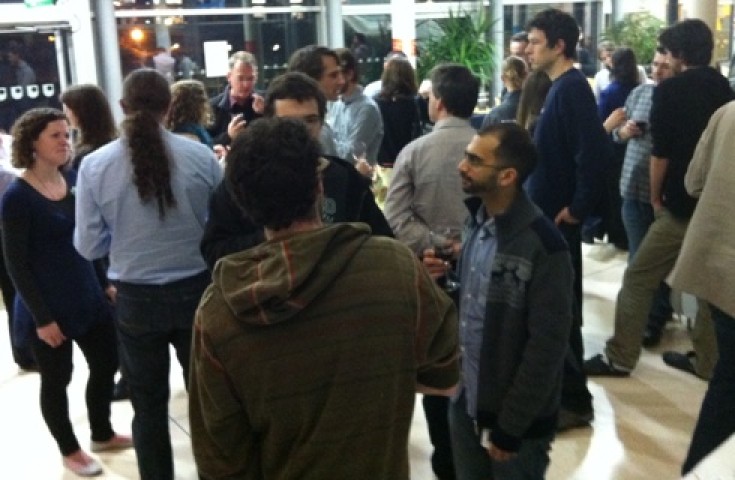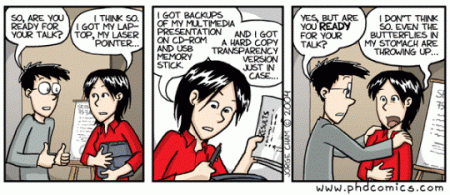
Geochemistry RiP
I recently attended a ‘Research in Progress’, or ‘RiP’, meeting organised by the UK’s Geochemistry Group. In contrast to the sombre undertones that such a heading carries, this one day conference gave a very encouraging outlook for geochemistry in the UK and provided a great chance for researchers at various points in their career to meet up and discus current projects in a relaxed setting. Whilst this conference was undoubtedly a success, most ‘research in progress’ meetings are perhaps better titled ‘research in press’ or ‘research published last year’, or in some instances, ‘research my student performed for me 10 years ago’. This is not a reflection of a lack of progress, rather the fact that many academics are unwilling to go out on a limb and present a partially completed dataset for fear of having to deal with difficult and potentially unanswerable questions from the Prof’s sitting in the front row, or from the know-it-all’s hiding in the back. Instead, most conference talks take the safer route and present a completed story that both student and supervisor are happy with and are able to defend against the most vindictive of onslaughts.

This conservative approach has its advantages. You will undoubtedly give a better presentation if you can use graphs and figures taken from recently published papers, and have the added bonus of scoring some serious self publicity points. You will also be less likely to fall into the trap of talking about something that you’re not particularly confident on… speakers who stumble down this route during a talk can often be seen floundering looking for a word that will carry them onto the safety of the next slide, whilst members of a competing research group are suddenly wide awake and on the edge of their chairs with hands half raised ready to pounce on the mistake when questions are taken.
However, the extra preparation that now goes into conference presentations also has its disadvantages. People, particularly (though not exclusively) PhD students, for whom presenting data is already a daunting enough task, get more worked up about whether Professor Blogs will be in attendance and what nasty questions they may ask, rather then considering the vast majority of the audience, who know far less about the subject but may find the results interesting and relevant to their own research. The presenter also feels under pressure to sell themselves as experts in the field rather than accept the fact that everyone gets nervous when giving a talk, and it’s ok to say that you ‘don’t know the answer… yet’.

In essence therefore, ‘fun’ is not a word that most people would associate with presenting their data. True research in progress meetings, such as that organised by the Geochemistry Group, provide an opportunity for us to change this perception and make presenting our data a more enjoyable affair. This particular RiP meeting was hosted by The Open University under the generic title ‘Building a Habitable Planet’ and provided an excellent showcase of research being carried out in a diverse range of subjects. Four sessions were loosely structured around keynote talks by Sarah Russell ‘Forming the Solar System and the Earth: Are we special?’, Craig Storey ‘Crustal evolution and plate tectonics: New insights from accessory minerals’, Rachael James ‘The evolution of ocean chemistry’ and Gideon Henderson ‘Rating the Ocean’, and included presentations from students, postdocs and research fellows. The meeting was well attended by Earth and Planetary scientists from throughout the country, and will hopefully provide a solid basis for repeat meetings over the next few years.
It would be naive to ask, or expect, different groups to stand up at these meetings and share the innermost secrets of their techniques before they’ve been published. However, by being a little more encouraging towards the new research and researchers coming from other institutions the geochemistry community will develop a much more relaxed and supportive atmosphere, something that often gets overlooked in our strive to get that elusive Science or Nature paper. Besides, all research is inevitably shared, so why keep it underwraps until you discover that another group has done exactly the same but with the opposite conclusion, or worse, the same conclusion ‘In Press’?
